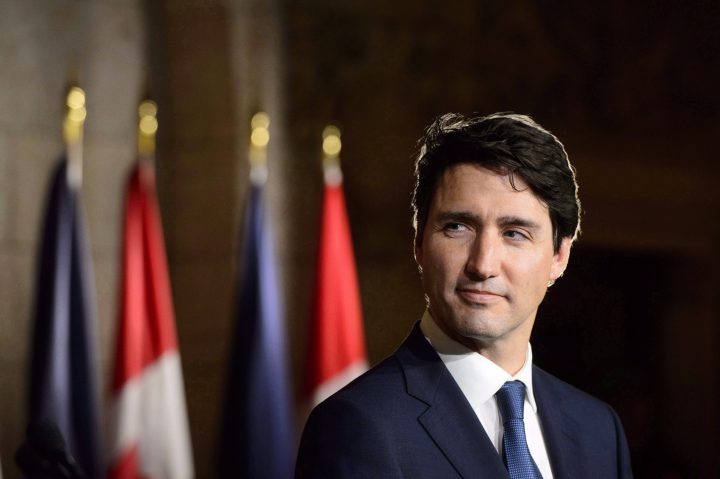It is not at all certain that much will come from it, but having three political leaders in the same room to talk out a controversy that may be drifting toward a crisis can likely only help.

Pleasantries will be exchanged when Prime Minister Justin Trudeau, Alberta Premier Rachel Notley and B.C. Premier John Horgan sit down together in the nation’s capital on Sunday morning.
But where the meeting goes from there is anyone’s guess.
Coverage of John Horgan and Rachel Notley on Globalnews.ca:
All three leaders have entrenched positions regarding the Trans Mountain pipeline expansion project and are in no position to abandon them. Thus, there appears little room for compromise or a brokered outcome.
Still, miracles can happen, even in such fractious circumstances. The factors and motivations behind each leader’s calculations are numerous in number. Let’s examine some of them.
Rachel Notley has to go all in
Notley represents a province that views oil pipelines as part of its sacred heritage. In fact, it’s something of a mystery why a pipeline doesn’t form part of the province’s official coat of arms.
So she has no choice but to aggressively champion the pipeline expansion project. She has to match overheated rhetorical outburst for overheated rhetorical outburst, whatever comes out of the mouth of her chief political rival, United Conservative leader Jason Kenney.
Threatening B.C. with reduced oil shipments, demanding Ottawa slash transfer payments to B.C., maybe even re-introducing the boycott of B.C. wine – all are moves designed to show Albertans she has their back in this pivotal fight.
- Americans can now renew passports online. Canadians are still waiting
- ‘Deeply ashamed’: Canadian Medical Association apologizes for harms to Indigenous peoples
- Stolen portrait of Sir Winston Churchill one step closer to returning home
- Pablo Rodriguez quits Trudeau cabinet to seek Quebec Liberal leadership
And it’s starting to look like Notley is close to playing the ultimate trump card – going it alone, and having the province (perhaps as a partner with the federal government) take over the pipeline expansion and build the project itself.

Get breaking National news
READ MORE: Alberta premier ready to talk but wants action at Trans Mountain meeting
Either way, Notley will move forward and not back. She may hold off on turning off the oil taps to B.C. for a while, but she cannot risk taking her foot off the pipeline accelerator.
Chances for her compromising on Sunday: close to zero.
The prime minister needs this pipeline to be built
Prime Minister Justin Trudeau has put himself – and perhaps his political future – in a tight little box. He has said, time and again, that the pipeline will be built under his leadership and there is no going back on that now.
Now that Kinder Morgan has arbitrarily set May 31 as the drop-dead day for making a final decision on whether to build the pipeline or simply walk away, any control over the timetable has been taken out of the politicians’ hands.
This is a dangerous place for the prime minister to be. He needs to be able to show Kinder Morgan the project will proceed without further delay, no matter what the B.C. government has to say or what actions it will take.
READ MORE: ‘We know that there will be pushback’ on Kinder Morgan: Jim Carr
Trudeau has two areas of possible compromise: his government can join B.C.’s reference case on regulating the pipeline outflow and expedite it to the Supreme Court of Canada, or he can add even more money and resources to address marine spill safety concerns.
Finance Minister Bill Morneau, has already ruled out the first option, although that decision can presumably be changed. The second option is definitely something the B.C. government would favour.
Trudeau may also dangle the prospect of cutting transfer payments to B.C. (it is set to receive almost $9 billion this year) in front of Horgan, but that carries with it some risk of political blowback as well.
John Horgan has softened his opposition but can likely go no further
Before it formed government, the NDP was fervently anti-pipeline. Its campaign platform explicitly stated, “We will use every tool in our toolbox to stop the project from going ahead.”
But on his first day in office, Horgan received legal advice that the platform position wasn’t legally possible now that his party was in government and not in opposition. He could not even talk about “stopping” the project anymore.
So now, Horgan says he merely wants to “protect our coastline.” Nothing further about stopping the pipeline’s construction. Hence, the court reference case on regulating bitumen after it leaves the pipeline.
As toolboxes go, it turns out this is a fairly small one.
READ MORE: B.C. Greens confident Horgan won’t back down on Kinder Morgan
It is hard to see Horgan abandoning his court challenge, even if Trudeau throws more money on the table for spill response measures.
His government has hired a very good lawyer in Joe Arvay, who has a pretty good track record when it comes to arguing constitutional issues.
In addition, the B.C. premier is expected to press Notley to at least consider building refineries, which would mean refined oil – and not bitumen – are loaded onto tankers in Burrard Inlet.
Overall, not a lot of room exists for much maneuvering by any of the leaders.
Still, as Winston Churchill once said: “It’s better to jaw-jaw than to war-war.”
Keith Baldrey is chief political reporter for Global BC















Comments